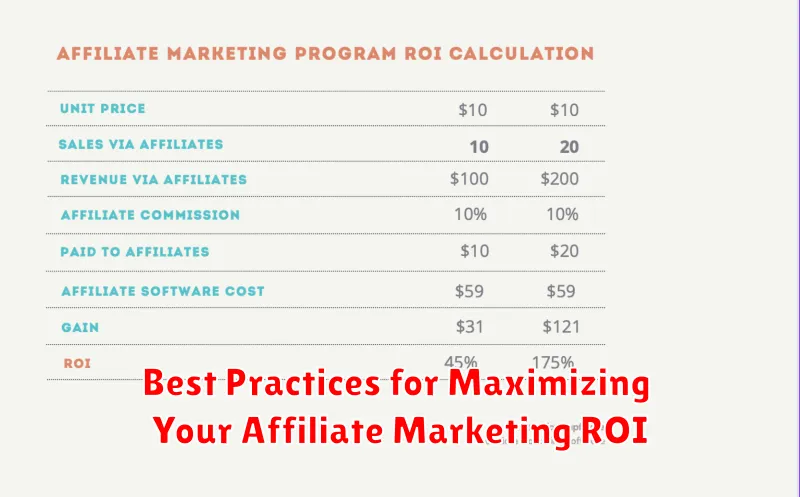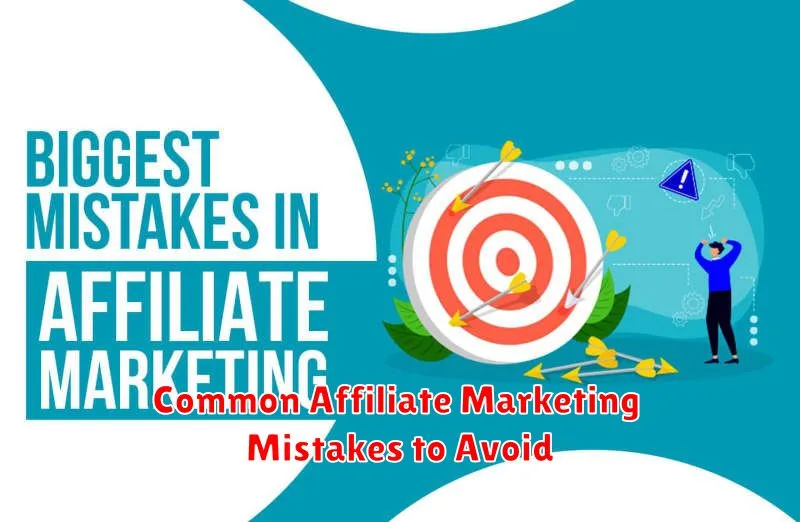Are you an ecommerce store owner looking to boost your sales and reach a wider audience? Look no further than affiliate marketing! This powerful strategy can be a game-changer for your business, driving significant revenue and brand awareness. Gone are the days of relying solely on traditional marketing methods. Affiliate marketing offers a unique and highly effective way to connect with potential customers and convert them into loyal patrons.
Imagine tapping into a vast network of passionate individuals who are eager to promote your products and services. By partnering with influencers, bloggers, and content creators, you can leverage their existing audience and credibility to reach new heights. With a well-structured affiliate program, you can incentivize these partners to share your brand with their followers, resulting in increased traffic, leads, and ultimately, sales. Ready to unlock the potential of affiliate marketing and take your ecommerce business to the next level? Dive in and discover the strategies that will revolutionize your online sales.
Introduction to Affiliate Marketing for Ecommerce
Affiliate marketing is a performance-based marketing strategy where you partner with other businesses or individuals, known as affiliates, to promote your products or services. These affiliates earn a commission for each sale they drive to your website. It’s a win-win situation – you get more customers and sales, and the affiliate earns money for their efforts.
In the context of ecommerce, affiliate marketing can be a powerful tool to reach a wider audience and increase brand awareness. By partnering with influencers, bloggers, or other relevant websites, you can tap into their existing audience and promote your products to a new group of potential customers.
There are several key advantages of affiliate marketing for ecommerce businesses:
- Cost-effective: You only pay for results, making it a highly efficient marketing strategy.
- Increased reach: Partnering with affiliates allows you to reach a wider audience and tap into new markets.
- Improved brand awareness: Affiliates can help spread the word about your brand and products to their followers.
- Boost sales: Affiliate marketing can drive significant sales growth by increasing traffic and conversions.
Overall, affiliate marketing can be a valuable addition to your ecommerce marketing strategy. By leveraging the power of partnerships, you can increase your reach, drive sales, and ultimately grow your business.
Types of Affiliate Programs: Choosing the Right Model
Once you’ve decided to dive into the world of affiliate marketing, it’s time to choose the right type of program for your business. There are several models to consider, each with its own unique benefits and drawbacks. Let’s explore some of the most common affiliate program models and how they can impact your ecommerce sales.
1. Pay-Per-Sale (PPS): This is the most straightforward model, where you pay your affiliates a commission only when they successfully generate a sale. This is a popular choice because it directly ties affiliate earnings to sales, making it a highly incentivized program. However, it can be less attractive to affiliates who may not be as motivated to drive sales if they feel the commissions are too low.
2. Pay-Per-Lead (PPL): In this model, you pay affiliates for each qualified lead they generate for your business. This works well for businesses that rely on lead generation, such as lead magnets, webinars, or consultations. While it doesn’t immediately result in sales, it can be a valuable way to nurture potential customers and build your customer base.
3. Pay-Per-Click (PPC): This model compensates affiliates based on the number of clicks they generate to your website. It’s often used for banner ads or specific links that drive traffic to your website. While less directly linked to sales, it can be an effective way to increase website traffic and brand awareness.
4. Hybrid Programs: These combine different models to offer flexibility and greater earning potential for your affiliates. For instance, a program could offer a base pay-per-click rate with a bonus commission for each sale generated. This can be a great way to attract a wider range of affiliates with diverse skill sets and marketing strategies.
Choosing the right affiliate program model is crucial for your success. Carefully consider your business objectives, target audience, and the incentives you want to offer to affiliates. Experiment with different models and track your results to determine which approach works best for your brand.
Identifying and Partnering with the Right Affiliates
Choosing the right affiliates is crucial for the success of your affiliate marketing program. You need to look for affiliates who align with your brand, target audience, and overall marketing goals. Consider the following factors when selecting your affiliates:
Audience Alignment: Ensure your affiliates have a following that overlaps significantly with your target audience. Look for affiliates who cater to the same demographics, interests, and purchase behaviors as your customers.
Brand Synergy: Partner with affiliates whose brand values and image complement yours. This ensures a consistent message and positive brand association for your products or services.
Performance Metrics: Examine the performance of potential affiliates. Look at their engagement rates, conversion rates, and overall traffic levels. Focus on those who demonstrate a track record of success.
Engagement and Content: Assess the quality and consistency of their content. Look for affiliates who are actively producing engaging and relevant content, which can drive traffic and conversions to your site.
Communication and Collaboration: Choose affiliates who are communicative and willing to collaborate. Open communication is essential for building a successful and long-lasting relationship.
Once you’ve identified potential affiliates, you can establish mutually beneficial partnerships through clear communication, transparent agreements, and consistent communication.
Creating High-Converting Affiliate Marketing Materials
Affiliate marketing is a powerful tool for driving ecommerce sales. By partnering with other businesses and influencers, you can reach a wider audience and generate more leads and sales. But to make your affiliate marketing campaign a success, you need to create high-converting materials that resonate with your target audience.
Here are some tips for creating high-converting affiliate marketing materials:
- Focus on the benefits for the customer: What are the key benefits of your product or service that your affiliate partners can promote? Highlight these benefits in your marketing materials.
- Use compelling visuals: People are more likely to engage with content that includes high-quality images and videos. Use visuals that showcase your product or service in the best light.
- Make it easy for customers to buy: Include clear calls to action and make it easy for customers to click through to your website or product pages. Use unique affiliate links to track conversions and optimize your campaigns.
- Provide valuable content: Don’t just focus on selling your product or service. Instead, create content that is informative, engaging, and helpful to your target audience.
- Offer incentives: Encourage your affiliate partners to promote your products or services by offering them incentives, such as commissions, discounts, or exclusive offers.
- Track your results: Use analytics to track the performance of your affiliate marketing campaigns. Monitor key metrics like clicks, conversions, and revenue. This data will help you optimize your campaigns and get the best results.
By following these tips, you can create high-converting affiliate marketing materials that drive traffic and sales for your ecommerce business.
Tracking and Measuring Affiliate Marketing Success
While affiliate marketing offers a lucrative opportunity to boost your ecommerce sales, it’s crucial to go beyond simply assuming your efforts are working. Tracking and measuring your affiliate marketing success is key to optimizing your campaigns, maximizing ROI, and ensuring long-term profitability.
There are several key metrics to monitor:
- Affiliate Revenue: Track the total sales generated by each affiliate, allowing you to identify top performers and understand overall campaign effectiveness.
- Affiliate Clicks and Impressions: Gauge the reach and visibility of your affiliate links, indicating the number of clicks and impressions they receive.
- Conversion Rate: Measure the percentage of clicks that result in sales, providing valuable insights into the effectiveness of your affiliate’s promotions and landing pages.
- Cost Per Acquisition (CPA): Calculate the cost associated with acquiring each customer through affiliate marketing, revealing the efficiency of your campaigns.
- Return on Investment (ROI): Determine the overall profitability of your affiliate marketing efforts by comparing the revenue generated against the costs incurred.
Implementing robust tracking and measurement tools is essential. Leverage affiliate platforms that provide detailed analytics, integrate your affiliate program with your website’s analytics software, and consider using UTM parameters to track specific campaigns and sources.
By diligently tracking and analyzing these metrics, you can gain a comprehensive understanding of your affiliate marketing performance. This empowers you to identify areas for improvement, optimize your campaigns, and ultimately drive significant growth in your ecommerce sales.
Building Strong Relationships with Your Affiliates
Affiliate marketing is a powerful tool for boosting your ecommerce sales, but it’s more than just throwing up a banner ad and hoping for the best. Building strong relationships with your affiliates is crucial to maximizing your program’s success. Think of it as a partnership, where you’re both working together to reach a common goal.
Here are some key ways to cultivate lasting relationships with your affiliates:
- Offer competitive commissions: A generous commission structure is a strong incentive for affiliates to promote your products. Research industry benchmarks and make sure your rates are competitive.
- Provide high-quality marketing materials: Make it easy for your affiliates to promote your products by providing them with professional-looking banners, landing pages, and other marketing materials.
- Communicate regularly: Keep your affiliates in the loop with updates on new products, promotions, and other important information. You can do this through email newsletters, a dedicated affiliate portal, or even a social media group.
- Offer support: Be responsive to your affiliates’ questions and concerns. If they have trouble promoting your products or accessing their affiliate dashboard, provide prompt assistance.
- Reward top performers: Recognize and reward your most successful affiliates with bonuses, exclusive offers, or other perks. This will show them that you value their contributions.
- Build a community: Create a space where your affiliates can connect with each other and share ideas. This could be a forum, Facebook group, or even a Slack channel.
By building strong relationships with your affiliates, you can create a win-win situation that benefits both parties. Your affiliates will be more motivated to promote your products, and you’ll see a significant increase in your ecommerce sales.
Leveraging Social Media for Affiliate Marketing
Social media is a powerful tool for affiliate marketers. It allows you to reach a large audience, build relationships with potential customers, and drive traffic to your affiliate links. In fact, social media is one of the most effective ways to promote affiliate products. With a well-planned strategy, you can leverage social media to increase your affiliate sales.
One of the most effective ways to use social media for affiliate marketing is to create engaging content that highlights the benefits of the products you are promoting. This content could include blog posts, infographics, videos, and even social media stories. Make sure to use relevant keywords to help your content get seen by the right people. This will make it easier to attract potential customers to your affiliate links.
Another effective way to use social media for affiliate marketing is to build relationships with influencers in your niche. Influencers are people who have a large following on social media. By partnering with influencers, you can reach a wider audience and drive more traffic to your affiliate links. If you’re on a tighter budget, start by reaching out to micro-influencers, as they often have a higher engagement rate than their larger counterparts. It’s also a great way to build trust with your followers.
Finally, don’t forget to use social media to promote your affiliate links. Share your affiliate links on your social media profiles and in your content. You can also use paid social media advertising to reach a larger audience. Paid ads can be very effective, however, make sure to track your results so you can see which ads are performing best.
By leveraging social media effectively, you can build a strong affiliate marketing business and skyrocket your ecommerce sales.
Legal Considerations for Ecommerce Affiliate Programs
As you venture into the exciting world of affiliate marketing, it’s crucial to navigate the legal landscape to ensure a smooth and compliant journey. This section delves into key legal considerations for ecommerce affiliate programs, providing you with a framework for responsible and ethical practices.
1. Disclosure Requirements: Transparency is paramount in affiliate marketing. Consumers should be aware of the affiliate relationship, preventing any misrepresentation or deceptive practices. This means clearly disclosing the affiliate nature of the links, banners, or promotions on your platform.
2. FTC Guidelines: The Federal Trade Commission (FTC) plays a significant role in regulating affiliate marketing. Adhere to their guidelines regarding endorsements and testimonials, ensuring authenticity and avoiding misleading claims. Be sure to use clear and conspicuous disclaimers when promoting products or services as part of an affiliate program.
3. Privacy and Data Security: Respecting user privacy is essential. Ensure that your affiliate program adheres to applicable privacy laws, like the GDPR and CCPA, protecting user data and obtaining informed consent. Transparent data collection and usage practices are crucial for building trust with your audience.
4. Contractual Agreements: Formalize your affiliate relationships with clear contractual agreements. These agreements should outline the terms and conditions, commission structures, payment methods, and intellectual property rights. A well-defined contract prevents misunderstandings and provides a legal framework for your partnership.
5. Intellectual Property Rights: Respect the intellectual property rights of your affiliate partners. Obtain necessary permissions to use their trademarks, logos, or copyrighted materials. Ensure proper attribution and compliance with copyright laws.
6. Compliance with Local Laws: Affiliate marketing operates in a global landscape. Consider local laws and regulations in the jurisdictions where your audience or affiliate partners reside. This may involve tax implications, data privacy regulations, or other specific requirements.
7. Disclaimer: The information provided in this section is intended for general knowledge and should not be considered legal advice. It’s crucial to consult with legal professionals to obtain personalized guidance and ensure full compliance with relevant laws and regulations.
Case Studies: Ecommerce Businesses Thriving with Affiliate Marketing

The power of affiliate marketing isn’t just hype – it’s a proven strategy that can drive significant revenue growth for ecommerce businesses. Here are some real-world examples of how brands have leveraged affiliate partnerships to achieve impressive results:
1. Skimm, a Daily Newsletter, Explodes Revenue with Affiliate Marketing
Skimm, a popular daily newsletter that provides bite-sized news summaries, transformed its business with a smart approach to affiliate marketing. They curate and recommend products and services relevant to their audience, seamlessly weaving affiliate links into their content. The results? A staggering 40% of Skimm’s revenue comes from affiliate commissions, demonstrating the power of targeted recommendations.
2. The Home Depot Leverages Influencer Marketing for Explosive Growth
The Home Depot, a household name in home improvement, understood the potential of influencer marketing. They partnered with a network of home decor influencers to showcase their products to a wider audience. This strategic move led to a significant boost in sales, proving that tapping into the right influencers can be a powerful way to drive conversions.
3. Patagonia’s Ethical Approach Boosts Brand Loyalty and Sales
Patagonia, a brand known for its commitment to sustainability and environmental activism, has found success with ethical affiliate partnerships. They work with bloggers and outdoor enthusiasts who share their values, creating authentic and engaging content that resonates with their target audience. This approach not only drives sales but also strengthens brand loyalty among environmentally conscious consumers.
These case studies showcase how affiliate marketing can be a game-changer for ecommerce businesses, regardless of size or industry. By leveraging the power of partnerships and targeted recommendations, brands can reach new audiences, drive sales, and build long-term customer relationships.
Best Practices for Maximizing Your Affiliate Marketing ROI

Affiliate marketing is a powerful tool for driving ecommerce sales, but it’s essential to maximize your return on investment (ROI). Here are some best practices to keep in mind:
Choose the right partners: Not all affiliates are created equal. Look for partners who align with your target audience, have a proven track record, and actively promote your products or services. This helps ensure that you’re reaching the right people and driving conversions.
Offer attractive commission rates: A competitive commission structure is crucial to attract top-tier affiliates. Consider offering tiered commissions or bonus incentives for high-performing affiliates. This encourages them to promote your brand with more enthusiasm.
Provide high-quality marketing materials: Give your affiliates the resources they need to promote your brand effectively. Offer compelling marketing materials such as banners, product descriptions, and social media posts. Make sure to design these assets to align with your brand aesthetic and resonate with their audience.
Track your results: It’s crucial to track the performance of your affiliate marketing campaigns. Utilize affiliate tracking software to monitor key metrics such as clicks, conversions, and revenue generated. This data helps you identify your most successful affiliates and refine your strategy.
Optimize your campaigns: Regularly analyze your affiliate marketing data to identify areas for improvement. Experiment with different promotion methods, commission structures, and marketing materials to maximize your ROI.
Build strong relationships: Building relationships with your affiliates is key to long-term success. Communicate regularly, provide support, and show appreciation for their contributions. This fosters loyalty and encourages them to promote your brand consistently.
By following these best practices, you can maximize your ROI from affiliate marketing and drive significant growth for your ecommerce business. Remember, success in affiliate marketing requires ongoing effort, analysis, and a strategic approach.
Common Affiliate Marketing Mistakes to Avoid

Affiliate marketing is a powerful tool for driving ecommerce sales, but like any marketing strategy, it requires careful execution. A common pitfall is failing to choose the right affiliates. It’s crucial to select partners whose audience aligns with your target market. If you partner with an influencer who promotes products drastically different from yours, your campaign is likely to underperform.
Another mistake is neglecting proper tracking and analytics. You should always be monitoring your affiliate campaigns to track their effectiveness. Use unique affiliate links and track key metrics like click-through rates, conversion rates, and return on investment (ROI). By analyzing this data, you can identify what’s working and what needs improvement.
Furthermore, don’t underestimate the importance of communication. Building strong relationships with your affiliates is key. Communicate regularly, provide them with the resources they need, and offer incentives to encourage them to promote your products. This fosters a collaborative environment, leading to better results for both parties.
Lastly, avoid the trap of focusing solely on short-term gains. While quick wins are enticing, sustainable growth requires a long-term vision. Invest in building a strong affiliate program that will generate consistent revenue over time. This involves focusing on quality over quantity, providing valuable resources, and nurturing long-term relationships with your affiliates.
Future Trends Shaping the Future of Affiliate Marketing

Affiliate marketing is rapidly evolving, with new trends emerging that are changing the landscape of this lucrative industry. As technology advances and consumer behavior shifts, savvy affiliate marketers are adapting their strategies to stay ahead of the curve. Here are some key trends that are shaping the future of affiliate marketing:
Artificial Intelligence (AI): AI is revolutionizing the way affiliate marketers operate, from automating tasks to personalizing the customer experience. AI-powered tools can analyze data, optimize campaigns, and predict customer behavior. This allows affiliates to target their efforts more effectively and maximize their ROI.
Social Commerce: The rise of social media platforms like Instagram and TikTok has created new opportunities for affiliate marketing. Social commerce enables brands to sell products directly on social media, making it easier for affiliates to promote products and earn commissions. Affiliate links integrated directly into posts and stories are streamlining the purchase process, leading to increased sales and brand awareness.
Influencer Marketing: Influencer marketing has become a dominant force in affiliate marketing. Influencers with large and engaged followings can drive significant traffic and sales for brands. Authentic reviews, product demonstrations, and endorsements from trusted influencers hold substantial weight with consumers, fostering greater trust in products.
Content Marketing: Affiliate marketers are embracing content marketing as a key strategy. Creating valuable and engaging content, such as blog posts, articles, and videos, helps establish authority and attract a target audience. High-quality content can drive organic traffic, build trust with potential customers, and ultimately lead to more affiliate sales.
Data-Driven Optimization: Data analysis is crucial for optimizing affiliate marketing campaigns. By tracking key metrics like click-through rates, conversion rates, and customer lifetime value, affiliate marketers can identify what works best and make adjustments to improve performance. The use of analytics helps ensure that campaigns are targeted and efficient, resulting in higher returns.
As affiliate marketing continues to evolve, embracing these trends will be essential for success. By leveraging the power of AI, social commerce, influencer marketing, content marketing, and data-driven optimization, affiliate marketers can position themselves for continued growth and success in this dynamic industry.

